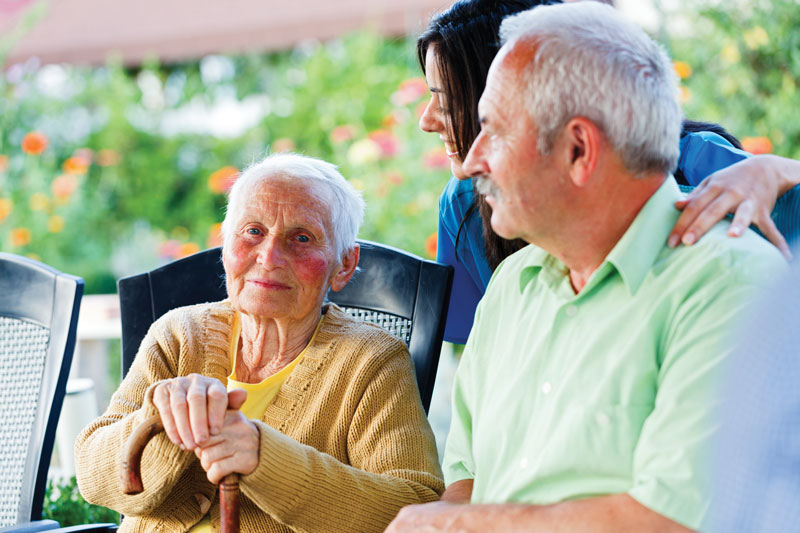Caring For Your Aging Parents
 Go to a dinner party or the gym and you are sure to hear of someone fretting about their parent’s health and well being. The amount of adult children caring for their parents has reached over 44 million. In addition, many are caring for their parents while raising their own children, hence the term “sandwich generation”.
Go to a dinner party or the gym and you are sure to hear of someone fretting about their parent’s health and well being. The amount of adult children caring for their parents has reached over 44 million. In addition, many are caring for their parents while raising their own children, hence the term “sandwich generation”.
The majority of the adult children are women, taking on the traditional role of caring. The only difference is the resources and support one finds in caring for their children are harder to find when caring for parents. Instead, many adult children muddle through the day to day realities putting band-aids on where they can and handling crisis as it arises. We are living in a different time where people are living longer than ever before with more health ailments. Many of us women did not have role models in caring for the elderly like we had in caring for children. It can seem daunting. The worst part is many of our parents don’t want our help or don’t want to be a bother. Their need for independence is vital and never did they think they would be leaning on their children for support.
It becomes important to first come to terms with the idea of role reversal; in many instances, you become the parents to your parents. The psychological impact is not to be taken lightly. For many of us, we have never seen our parents so vulnerable. The pain of watching them deteriorate is real. In many instances, old wounds begin to re-emerge and even sibling rivalries can flare up. Instead of seeing this as an extra burden, this can be a wonderful time to heal those wounds and deepen the relationship with one’s parents and siblings. Take time to speak with a friend or therapist of the feelings arising. Join a support group for adult children caring for their parents. Have family meetings to make sure everyone is on the same page.
The truth be known, most of us will be caring for an older adult some time in our life, whether we like it or not. To prepare, it is important to begin gathering information. One of the best places to start is the Area Agency on Aging (AAA) in your area. Every county in the country has an AAA, which oversees all the state and federal programs on aging. For parents with any form of dementia, contact the Alzheimer’s Association, which provides education, information and support groups. Many local senior centers even provide classes and support groups for adult children caring for your parents. Check your local paper for upcoming classes or check with your city/town hall for resources available. Remember, you are not alone, but one of over 44 million people caring for your parents.
As the owner and Client Care Manager of Home Care Assistance, Sue loves overseeing their clients’ care and helping them age comfortably at HOME. Sue is driven to exceed client expectations and believes that the relationship and the communication between the client, family members and Home Care Assistance must be superior under all circumstances. For more information, visit: www.homecareassistanceportlandmaine.com.




